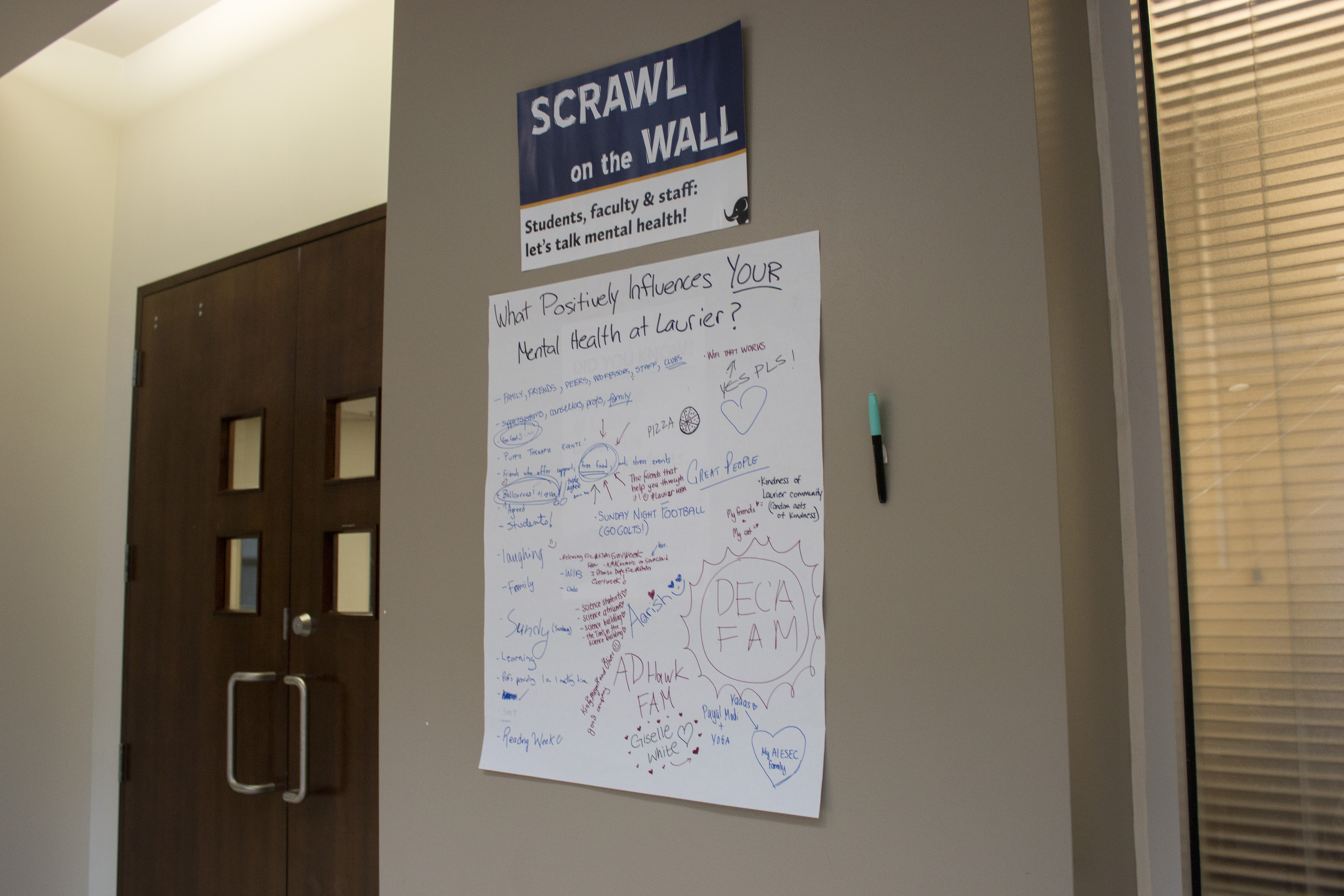Scrawl on the Wall

Wilfrid Laurier University’s mental health task force and mental health education group are using creative methods to start the conversation about mental health on campus.

Wilfrid Laurier University’s mental health task force and mental health education group are using creative methods to start the conversation about mental health on campus.
From March 9 to 13, Laurier hosted the “scrawl on the wall” initiative, which allowed staff, students and faculty to write the state of their mental health on big pieces of paper in approximately 12 locations at Laurier’s Waterloo, Brantford and Kitchener campuses.
This project, which was piloted by the University of Manitoba, allowed staff, students and faculty to write what positively affects their mental health, what negatively affects their mental health and how Laurier can help students’ mental health.
Leanne Holland Brown, dean of students at Laurier’s Waterloo campus and co-chair of the mental health task force, said this initiative was a good opportunity to collaborate between the two mental health groups on campus.
“I would say the goal was to engage as many faculty, staff and students in the discussion of mental health at Laurier,” Holland Brown said. “It seemed like a really cool, refreshing way to urge some conversation and solicit feedback from our community.”
Scrawl on the wall papers stayed up for a week to allow students to leisurely write what they felt about mental health at Laurier. They were taken down Monday and according to Holland Brown, the two groups have started to collect the data and synthesize it into a form.
Once it is finished, Holland Brown and Pamela Cant, vice-president of human resources and the other co-chair of the mental health task force, will review the data.
They will then share it with the mental health education group and mental health task force to look into the next steps.
“You don’t ever want to make assumptions in these types of exercises,” Holland Brown said.
She continued to explain that they will look at the positively-contributing factors and see how to enhance those, while identifying the negatively-affecting factors to mitigate them and “enhance a culture that’s positive around wellness.”
“Those are the things we want to work on where possible to understand what can be changed.”
Holland Brown explained that this information gathered in a creative, informal way will help formulate later research, such as surveys with more in-depth questions and a more “robust strategy” to highlight what they’re doing well and what they need to improve on for students, staff and faculty’s mental health.
“We recognize to even ask good questions in surveys, sometimes you have to have an initial sense what the opportunities and gaps are and to identify the pulse on campus around mental health,” Holland Brown said. “We’re really excited to be part of the legwork that was needed.”


